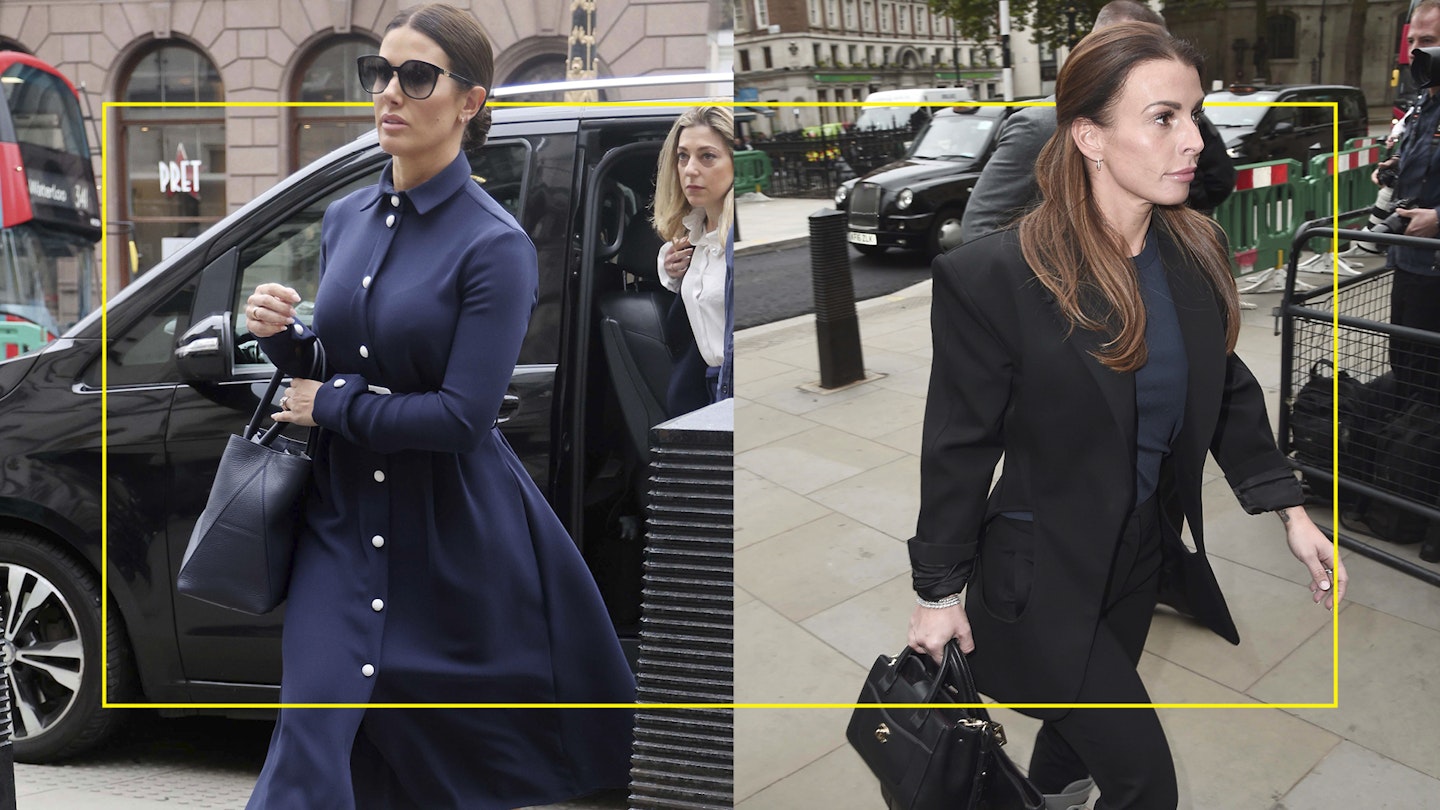It is the whodunnit that has held our attention for almost three years, a tale of two warring Wags with all the twists of a period drama.
Now, Coleen Rooney and Rebekah Vardy have finally duked it out in court. Coleen – in (one) Gucci loafer and a sharp Mugler blazer, Rebekah in a cinched Edeline Lee dress – refused to look at each other.
Rarely outside of scripted drama is a rivalry so neatly framed. But what’s striking about this saga is that the competition between Coleen and Rebekah that landed them in court may have, in the past, pushed them to succeed. Everyone needs a nemesis.
Then 20-year-old Coleen McLoughlin’s star turn in the stands at the 2006 World Cup in Germany led to columns in Closer and OK! magazines, a six-figure book deal and even a TV series, Coleen’s Real Women. Her legal team has implied that all this bad blood stems from Rebekah having aspired to that same celebrity for herself.
In October 2019, Coleen publicly accused Rebekah of leaking information about her to the media. After a months-long ‘sting operation’ on Instagram, Coleen declared that just one account had been viewing the fake stories shared with The Sun newspaper: ‘It’s… Rebekah Vardy’s account.’
People gravitate towards a balance of enemies and friends in their professional networks, and succeed when they achieve it
The saga has been slowly going through the courts, with Rebekah – who strongly denies the allegations – suing Coleen for libel. Coleen has been trying to prove that Rebekah herself was behind the leak.
Yet there’s sound psychology in the power of having a nemesis professionally: someone you compete with in your career, who can focus your mind and spur you on. Many of us have had the experience of only realising what we want to achieve after seeing someone we don’t like get there first.
Yes, it’s petty. But it’s also human nature – and, harnessed the right way, it can help you succeed. A 2014 study of long-distance runners found that those who had a rival reported significantly higher motivation than those who did not and, when competing against them, recorded much faster times.
Writers in particular seem susceptible to nemeses, with both Roxane Gay and Jon Ronson having talked about theirs (billionaire Tyler Perry and documentarian Louis Theroux respectively). But across culture, from Oasis versus Blur, to Taylor Swift and Katy Perry, or Below Deck and Selling Sunset, we see the impacts of rivalry – not all of them negative. Indeed, a 2019 study of day traders found that workers gravitate towards a balance of enemies and friends in their professional networks, and succeed when they achieve it – not when they have no enemies at all.
Especially in a world as monied and high-profile as the Wags, a flair for drama is part of the job description. But while it’s easy to imagine that Rebekah and Coleen once got something useful out of their rivalry, its ballooning cost (legal fees are predicted to reach £3m) – not to mention the emotional toll – means it’s become a cautionary tale. Yes, an enemy can spur you on. But don’t let them land you in court.
